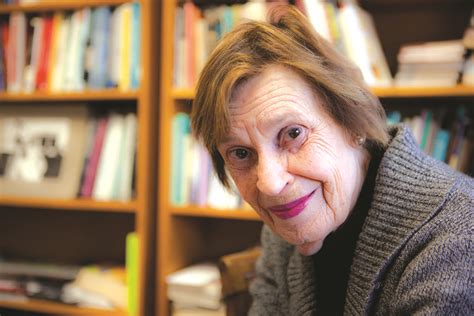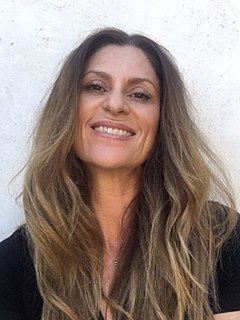A Quote by Erica Jong
certain very old people reach an age where every funeral becomes some sort of insane confirmation of strength, rather than of vulnerability, as it is when we are in our thirties or forties and our friends die.
Related Quotes
I think everybody plays a role in their own aging. Some people accelerate it. Some people slow it down. Some people manage to reverse it. It all depends on how much you are invested in the hypnosis of our social condition. So if you believe that at a certain age you have to die and you become dysfunctional, then you will.
Vulnerability is not weakness, and the uncertainty, risk, and emotional exposure we face every day are not optional. Our only choice is a question of engagement. Our willingness to own and engage with our vulnerability determines the depth of our courage and the clarity of our purpose; the level to which we protect ourselves from being vulnerable is a measure of our fear and disconnection.
Jewish Christmas' - that's what my gentile friends called Chanukah when I was growing up in Michigan in the thirties and forties. Anachronistic, yes, but they had a point. Observing the dietary laws of separating milk and meat dishes was far easier for the handful of Jewish families in our little town than getting through December without mixing the two holidays.
When we truly understand what it means to love as Jesus Christ loves us, the confusion clears and our priorities align. Our walk as disciples of Christ becomes more joyful. Our lives take on new meaning. Our relationship with our Heavenly Father becomes more profound. Obedience becomes a joy rather than a burden.
It will never be the case that people won't eat meat. I think it could conceivably be the case one day that people eat very small amounts of it. That it's a special thing, rather than reach for it because it's cheap or reach for it because it's convenient, that it becomes something festive or something celebratory, once a week, and that could actually be achieved on small farms if we really changed our habits.
Nearly every morning, a certain woman in our community comes running out of her house with her face white and her overcoat flapping wildly. She cries out, "Emergency, emergency," and one of us runs to her and holds her until her fears are calmed. We know she is making it up; nothing is has really happened to her. But we understand, because there is hardly one of us who has no been moved at some time to do just what she has done, and every time, it has taken all our strength, and even the strength of our friends and families, too, to keep us quiet.
In terms of the ego, most religions teach in some way that all of us must die before we die, and then we will not be afraid of dying. Suffering of some sort seems to be the only thing strong enough to destabilize our arrogance and our ignorance. I would define suffering very simply as whenever you are not in control.
To a large extent, the aged in our society are ghettoized. Old people are seen as useless, bypassed by history, old-fashioned, in the way. So, not surprisingly, when we reach the official mark of old age, we're supposed to go gently into that good night, to get off center stage and hand over the spotlight. Old age is also surrounded by shame - the myth of impotence and inability.
You just don't make decisions about what you're going to be like when you are old. I know that I am making that decision right now. Every time we perceive ourselves, others, life, the world and God in a certain way, we are deepening the habits that will take over in old age. Every time I act on the insights that I am getting now I am deciding my future and choosing to be a kindly or cynical old man. Our yesterdays lie heavily upon our todays and our todays will lie heavily upon our tomorrows.







































